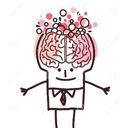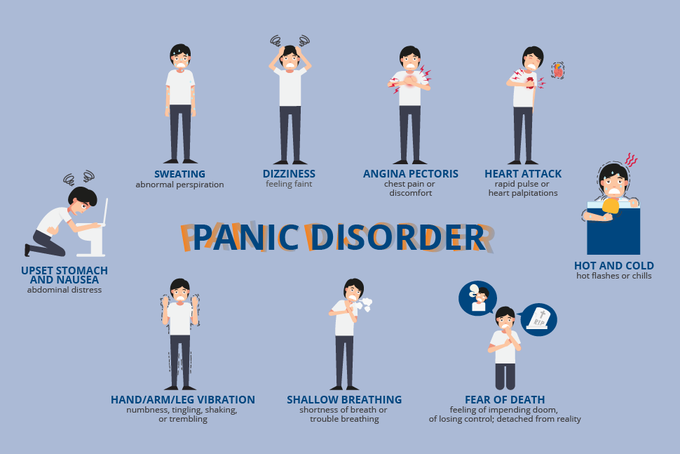
Other commentsSign in to post comments. You don't have an account? Sign up now!
Related posts
Epstein-Barr Virus (EBV)-Associated Lymphoproliferative DisorderLambert Eaton SyndromeImmunodeficiency disordersGeneralized Anxiety Disorder
Generalized anxiety disorder involves persistent and excessive worry that interferes with daily activities. This ongoing worry and tension may be accompanied by physical symptoms, such as restlessness, feeling on edge or easily fatigued, difficulty concentrating, muscle tension or problems sleeping. Often the worries focus on everyday things such as job responsibilities, family health or minor matters such as chores, car repairs, or appointments.The core symptom of panic disorder is recurrent panic attacks, an overwhelming combination of physical and psychological distress. During an attack, several of these symptoms occur in combination:
Panic Disorder Symptoms
During an attack, several of these symptoms occur in combination
Palpitations, pounding heart or rapid heart rateNumbness or tinglingSweatingChills or hot flashesTrembling or shakingNausea or abdominal painsFeeling of shortness of breath or smothering sensationsFeeling detachedChest painFear of losing controlFeeling dizzy, light-headed or faintFear of dyingFeeling of choking
Because the symptoms can be quite severe, some people who experience a panic attack may believe they are having a heart attack or some other life-threatening illness. They may go to a hospital emergency department. Panic attacks may be expected, such as a response to a feared object, or unexpected, apparently occurring for no reason. The mean age for onset of panic disorder is 20-24. Panic attacks may occur with other mental disorders such as depression or PTSD.Separation Anxiety Disorder
A person with separation anxiety disorder is excessively fearful or anxious about separation from those with whom he or she is attached. The feeling is beyond what is appropriate for the person's age, persists (at least four weeks in children and six months in adults) and causes problems functioning. A person with separation anxiety disorder may be persistently worried about losing the person closest to him or her, may be reluctant or refuse to go out or sleep away from home or without that person, or may experience nightmares about separation. Physical symptoms of distress often develop in childhood, but symptoms can carry though adulthood.Epithelial disorderDDX3X Related Developmental Disorder
Polycystic Kidney Disease
Polycystic Kidney Disease



